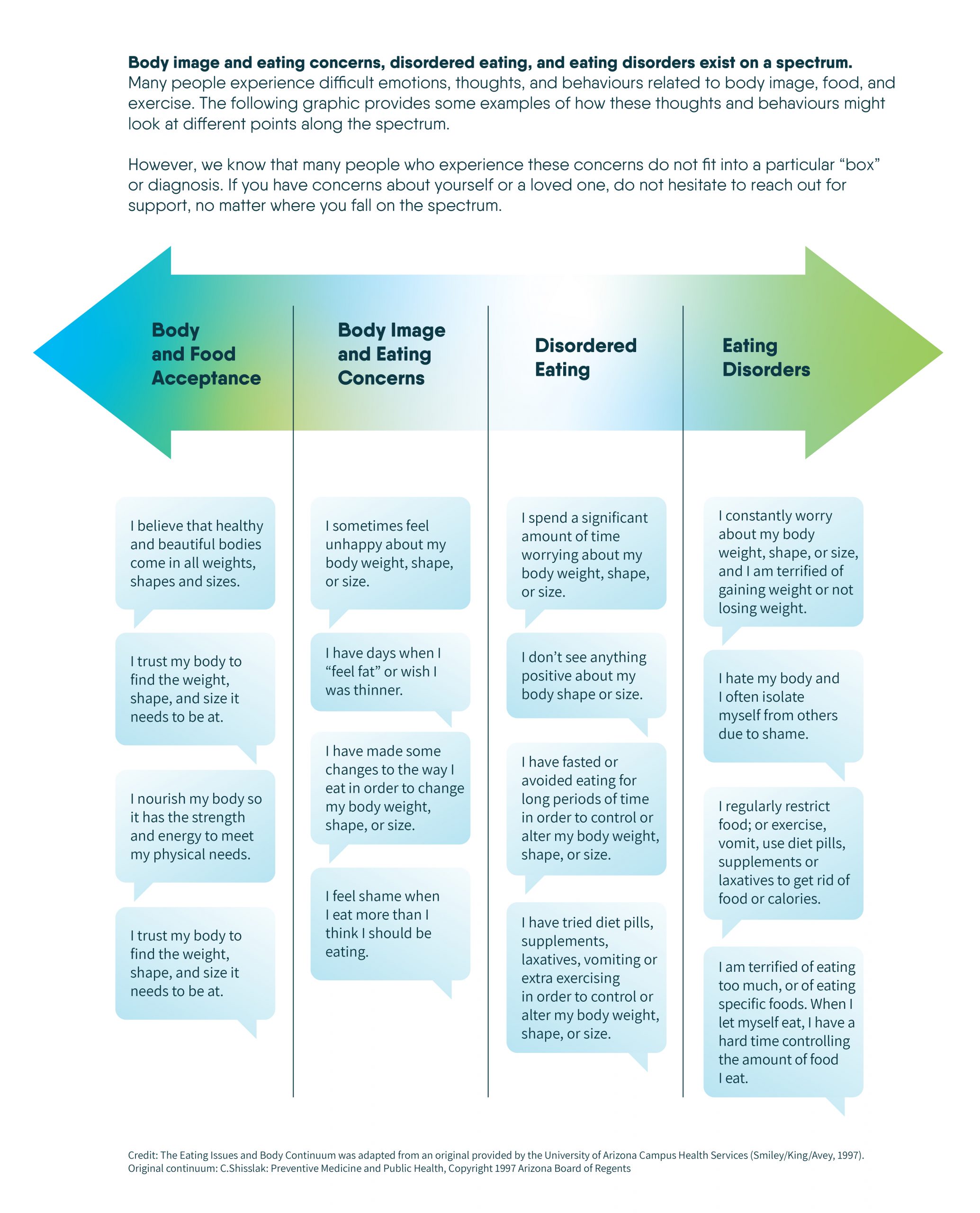Body Image, Disordered Eating & Eating Disorders

Body image, disordered eating and eating disorders exist on a spectrum. As we grow up, there are many factors that can influence how we see and feel about our bodies. Some people experience difficult emotions, thoughts and behaviours related to body image, food and exercise. In this section you will find information, support and resources to help you develop a better relationship with your body, no matter where you are on your journey.
Disordered Eating & Eating Disorders
7 mins
Want to explore and learn more? Here are some options for you.

Talking About Our Bodies

Supporting Others
Take the Body Image, Disordered Eating & Eating Disorders Self-Check Quiz
Take quiz



